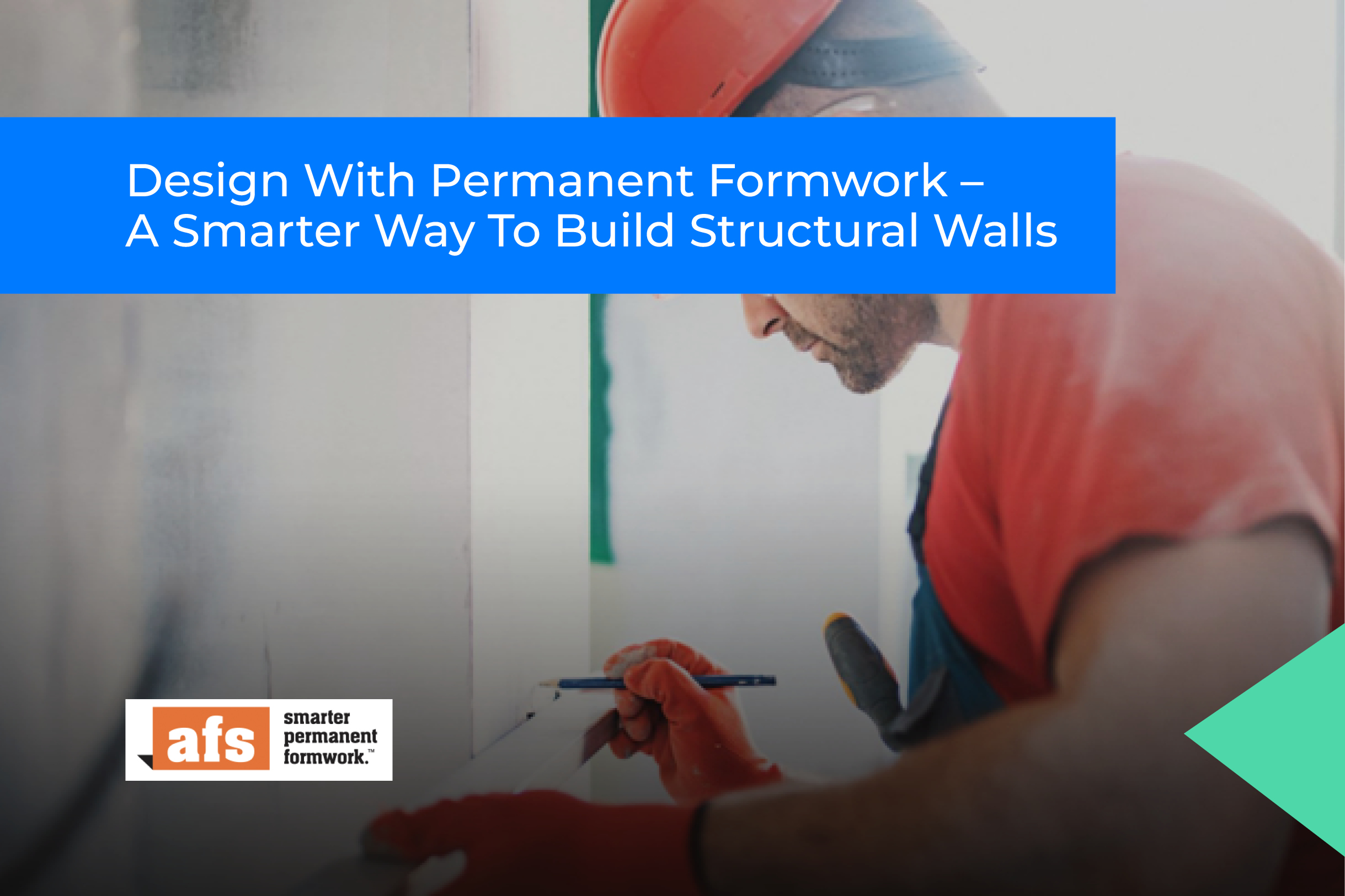Design with Permanent Formwork – A Smarter Way to Build Structural Walls

As it stands, the construction of formwork usually involves one of three well-known methods – in-situ conventional formwork, blockwork or precast concrete. While each of these methods is reliable and, if constructed appropriately, can be relied upon to meet all regulatory requirements, each also has its drawbacks.
In-situ conventional formwork is costly and tends to involve a lot of unnecessary waste; blockwork is notoriously slow and labour intensive; and precast concrete formwork generally requires the use of cranes.
The good news is that an effective and proven alternative – permanent formwork – is available. Reliable, quick, and easy to install, it does away with many of the complications associated with the above, better-known formwork options. And on top of that, it also delivers several design related benefits.
Titled ‘Design with Permanent Formwork – A Smarter Way to Build Structural Walls’, this session of CPD Live focuses on these systems. Our speaker identifies the types of permanent formwork systems available, outlines how to derive the most benefit from them, and explains how to ensure they meet all regulatory requirements.
Learning Outcomes
At the end of this presentation, you should be able to:
- Identify the different types of permanent formwork walling systems available
- Outline the benefits and recognise the design flexibility and cost efficiencies associated with permanent formwork
- Identify applications that are suitable for permanent formwork walling systems
- Outline the compliance requirements associated with permanent formwork
(PC 18 PROJECT INITIATION AND CONCEPTUAL DESIGN, PC 28 PROJECT INITIATION AND CONCEPTUAL DESIGN, PC 39 DETAILED DESIGN AND CONSTRUCTION DOCUMENTATION, PC 44 DETAILED DESIGN AND CONSTRUCTION DOCUMENTATION, PC 45 DETAILED DESIGN AND CONSTRUCTION DOCUMENTATION)
Speakers

Wahab Kazim, Specification Manager, CSR
Wahab is a Civil Engineer with a passion for blending technical expertise with strategic problem-solving. With experience in specification, project management, and business development, he thrives on simplifying complexity and helping architects and engineers make informed decisions. Currently at CSR as Specification Manager, he focuses on AFS and Hebel, working closely with specifiers to ensure the best outcomes for their projects.
Wahab enjoys collaborating with teams, driving innovation, and communicating technical insights in a clear and engaging way. His approach is rooted in structured thinking, creativity, and a strong focus on building meaningful connections.

Sahil Bal, Technical Support Engineer, CSR
Sahil is part of CSR’s Designlink technical team and has been supporting internal and external stakeholders for the past two years. He provides guidance on a range of CSR building products, with a focus on AFS, Hebel, and Cemintel systems. Sahil works closely with architects, engineers, and builders to assist with technical enquiries and ensure compliant, practical solutions for their projects.
